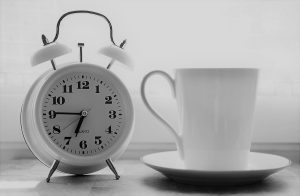Too much heat can affect sleep quality, making it difficult to get comfortable enough to fall asleep and stay in sleep mode. Ideally, the body needs a temperature of around 20 degrees Celsius for relaxation. If your room temperature is much higher than this, you might find yourself tossing and turning, lying awake in bed, staring at the ceiling, frequent dream interruptions, etc. Luckily, using essential oils for sleep is becoming more common. They can be helpful – even in warmer weather.
The human brain responds emotionally to all kinds of aroma, be it the smell of dirty socks or a garden of roses. The function of smell is one of the most primitive of human senses. Its mechanism is a result of thousands of years of evolution, which helped prehistoric humans survive in harsh conditions. When the aromatic compounds of essential oils come in contact with the olfactory(smell-related) nerves, these nerve cells send impulses to the limbic system, which is associated with various emotions. That is how different scents trigger different kinds of responses from the brain.
The best essential oils for sleep
Lavender oil: Lavender is the world’s most used and adored essential oil of all times for relaxation and sleep. The heavenly smell of lavender oil relaxes the mind and calms the central nervous system. It makes you fall asleep faster and improves quality as well as the duration of sleep. Even if you do not own a diffuser, just a few drops on the pillow or temples can make you a sound sleeper.
Rose essential oil: One drop of rose oil is extracted from around 60 Persian roses. Just imagine a room full of roses! This popular essential oil is profoundly relaxing and soothing for the mind. It immediately removes fatigue, overcomes restlessness, and gets you in the mood of relaxation. Rose oil has been used to cure insomnia and sleep disorders for ages.
Ylang-ylang essential oil: The thick floral scent of ylang-ylang essential oil acts as a mild sedative and decreases mental activity. This can help you fall asleep faster if you have a habit of working late at night. A 2013 study found ylang-ylang to prompt a decrease in blood pressure and heart rate of healthy adults and suggested it as an effective sedative to cure insomnia.
Sandalwood oil: Sandalwood oil has an alluring earthy, woody scent that creates a pleasant aroma. It has a grounding and cooling effect on the body and mind. If applied topically, it relaxes muscles and promotes a sense of calmness. For hot South African summers, sandalwood oil makes a perfect companion for a good night’s sleep, as its cooling property can help lower the body temperature and support an easy transition to non-rapid eye movement (NREM) stage of sleep.
How to use essential oils for sleep
- Scalp or foot massage: This is the best way to enjoy the sedative power of essential oils, especially as all these listed oils have cooling effects. Massage also relaxes the muscles and removes fatigue while offering a range of skin and hair benefits. Add four to five drops to a tablespoon of coconut or olive oil. Give yourself a grounding foot massage and a soothing scalp massage. Enjoy a peaceful sleep.
- Diffusion: Add a few drops of your preferred oil to a diffuser. If you do not own a diffuser, mix 8-10 drops to a cup of water in a spray bottle. Spray this liquid in your bedroom, pillows, clothes, etc.
While using essential oils can help you sleep better, they should be used carefully and always diluted, as they are very concentrated. Also, some simple bedtime hacks like drinking a glass of water, wearing light cotton clothes and taking a shower before bed may further help you enjoy a comfortable and serene sleep.
Of course no amount of essential oils can negate the effects of an uncomfortable mattress. If your mattress is more than eight years old, you struggle to sleep and you wake up with aches and pains, it might be time to consider investing in a new mattress.




